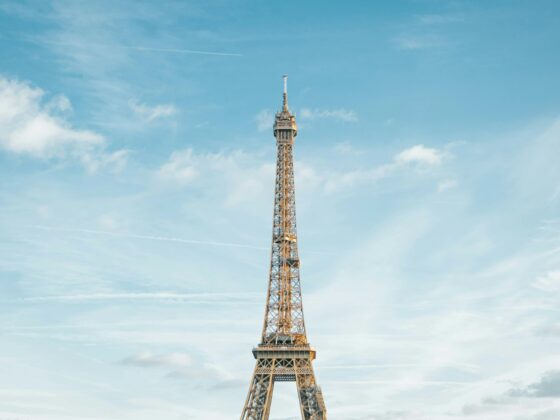Mr. Minister of the Economy and Labour,
Mr. Mayor,
Mr. President of Messe Berlin,
Ladies and Gentlemen,
It is a singular paradox that the ITB – this great fair dedicated to tourism, an activity that is the synonym of peace – is opening at a time when the world is preparing to go to war! Do we really have the heart to think about travel, relaxation, leisure and holidays, while weapons are at the ready and people are bracing for suffering?
This antinomy, however, is only illusory: it is when times are getting harder, when images of destruction and hate swirl all around us that the need to get away and escape is most keenly felt.
For the past two years, we have been wrestling with this contradiction.
Since 11 September, we have been experiencing the most serious crisis in the history of world tourism. Djerba, Bali, Mombassa… the attacks have come one after another, targeting foreign visitors who have become innocent victims of conflicts with which they have nothing to do.
Despite this, fear has not managed to sweep everything away and tourism has not collapsed as some were only too quick to predict. In 2001, despite the combination of the tragic attacks in New York and Washington and the worldwide economic downturn that had already begun even before the attacks, the number of international tourist arrivals fell by just 0.5 per cent, while domestic tourism increased in all countries, as those who chose to travel did so to destinations closer to home.
In 2002, despite an economy that was still in the doldrums, tourism managed to turn the trend around. With 715 million international arrivals representing an increase of 3 per cent, the industry was back to positive growth. Although this recovery will in all likelihood be less spectacular when the revenue figures become known, it once again demonstrates our industry’s resilience.
The Americas suffered in 2002, but the Asia-Pacific region continued with a rapid growth rate of 8 per cent. The biggest surprise was the Middle East: despite all the tensions in the region, it saw an 11 per cent increase in international arrivals, thanks largely to the strong performance of intraregional traffic. Europe more than held its own with a 2.4 per cent increase in flows.
The sector’s performance over the past few months confirms what I said here in Berlin last year: our confidence is based on consumer behaviour. The need to travel, whether for business or leisure, is already too deeply ingrained in our societies to be easily effaced. In spite of all the obstacles and risks consumers may perceive, they will do what they can in order to travel even if it means reducing their expenditure, changing their destination, postponing their trip or shortening their stay.
This exceptional steadiness of demand makes it possible to overcome higher prices on the supply side, resulting from higher energy, security and insurance costs that have repercussions on the entire sector.
Ladies and Gentlemen,
Although history never repeats itself quite the same way each time, we can look back to many instances where pre-crisis growth rates were recovered quickly after a brutal shock brought about by a regional or a global crisis. The most appropriate reference point for the current situation is undoubtedly the Gulf War. It should be recalled that on that occasion, tourism did not go into recession. Growth slowed down to 1.2 per cent in 1991 but never turned negative. The following year the industry posted a spectacular 8.3 per cent jump.
This fair is thus opening at a time when we are perhaps at the lowest point of the curve. Tourism consumers and enterprises are just like other economic operators in this respect: they put off their decisions because there is nothing they dislike more than uncertainty. Even before it has begun, the Iraqi conflict is already having a negative impact on our industry by fuelling fear, creating a wait-and-see attitude, discouraging bookings, and delaying investment plans. The situation is bound to clear up one way or another. I am convinced that none of us here wants to see such a clarification resulting from the worst possible outcome for our sector: war. Everyone knows that tourism and war are incompatible.
They are like fire and water, and nothing good ever happens when the two meet. We would like to believe that those who hold the future in their hands will make their decisions rationally and that they will take into account, among other considerations, the consequences of their choices for vital sectors of the world economy such as transport and tourism.
But if war were to break out, we can only hope that it is as short and as geographically limited as possible. And let us keep in mind that there are two powerful reasons to remain reasonably hopeful and optimistic.
The first is that never in the history of tourism has there been a deep and lasting recession. Tourism has always bounced back and it has always done so quickly. In these difficult times, the tourism industry is not a particularly weak sector of the world’s economic activity. On the contrary, it is a factor that ensures stability and promotes recovery. This applies not only to the world economy, but to the German economy as well.
The second reason for hope has to do with the fact that the tourism industry has always come out of crises in much better shape than it has gone into them. The economic and financial crisis of Asia-Pacific and Russia in 1997-1998 is a clear example: these destinations came out of the recession stronger and more firmly on the road to sustainable development. We can see this happening once again. The adjustment period we are going through is accelerating changes in consumer habits and transforming the fabric of industry. It has seen the arrival of new operators, especially in air transport, while others have disappeared. It has led to restructuring and regrouping, the implementation of new technologies, the modernization of marketing techniques, the strengthening of cooperation between the private and public sectors, to the benefit of all involved.
The World Tourism Organization invites you to look at the situation in one year’s time, at the ITB 2004, where we shall surely see a tourism industry – both Germany’s and the world’s – that is stronger, more certain of its economic foundations and more confident about its future.
Thank you.








